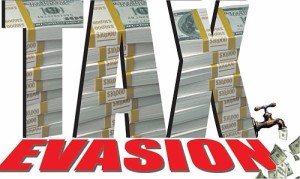You’ll Be Hearing From My Solicitor!
 Okay, so that heading was a shameless ploy to get your attention. It’s a line beloved of dramatists when, usually rather over-starched, people get themselves into some kind of difficulty. But, in the same way as a dog isn’t just for Christmas, solicitors aren’t just for the bad things in life. You don’t need to be involved in a court case in order to need one.
Okay, so that heading was a shameless ploy to get your attention. It’s a line beloved of dramatists when, usually rather over-starched, people get themselves into some kind of difficulty. But, in the same way as a dog isn’t just for Christmas, solicitors aren’t just for the bad things in life. You don’t need to be involved in a court case in order to need one.
Safe as Houses
Property is an area where solicitors often come into our lives. Most of us will encounter a solicitor when buying or selling a house as they handle the conveyancing process. This is the transfer of the legal title of the property from one person to another and the filing of all the paperwork associated with it.
The conveyancing process usually takes several weeks though the exact time can vary depending on a number of legal, personal and financial issues. The sale contract isn’t legally binding until contracts are exchanged.
Where There’s a Will, There’s a Way
The other area where solicitors come into people’s lives is wills and inheritances. It’s possible of course to write your own will, but solicitors have the experience to write it in such a way that you ensure your wishes are carried out. Solicitors can also help with the administration of your estate when you pass away and planning for inheritance tax. They can also store your will safely for you so that your relatives know where to find it.
Business Management
If you run a business then you’ll probably need to be involved with a solicitor for that too. Again they can help with property transactions, although a solicitor can also make sure you’re on the right track with other contracts too.
You may require help drawing up shareholder agreements or partnerships for example. Or you may need to draw up contracts for mergers or buy outs. If you’re buying a franchise or carrying out some form of intellectual property transaction then you’ll probably need a solicitor to help you with that too.
Using a solicitor to help you draw up employment contracts can ensure that you avoid disputes later. Getting the legal issues right is particularly important when it comes to things like redundancies and dismissals. Getting the advice of an employment lawyer early in the process helps ensure there won’t be problems in future.
Finding a Solicitor
When it comes to finding a reputable firm of solicitors, try to find one that specialises in the area of law that you need. The Law Society’s website lets you search for local solicitors and the areas they specialise in.
It’s important to find out about the fees that will be charged before you approach a solicitor. Many firms will offer a free or low-cost initial interview to allow them to find out your requirements and help you to decide if you want them to work for you.
It’s important to be clear when briefing your solicitor and to keep copies of all relevant paperwork. If you need to send documents through the post, make sure you use a secure method like recorded delivery to ensure that they arrive safely.
Whatever you need a solicitor for; you should be able to find a firm in your locality. There’s nothing to stop you shopping around a few different firms to ensure you find one that you’re comfortable working with and that is able to meet your needs.
Paula Whately is a writer who understands that a solicitor can be an important person to seek help from in many situations. If you are looking for reputable solicitors, Camberley experts can guide you in finding one which suits your personality and needs
Categories: Federal Tax, Income Tax, State Tax, Tax Evasion, Tax Law Tags: business management, law, property, solicitors, sourcing, wills and trusts
Tax Avoidance – Time To Name And Shame?
 Much has been made over recent months about aggressive tax avoidance schemes and the types of companies and individuals who enter into them. As the media has seemingly started to try to ‘name and shame’ those promoting the scheme, as well as some of their higher profile participators (such as Jimmy Carr), is the next step to publicise other individuals and companies who become involved in such strategies? There seems to be a suggestion that those entering into tax avoidance schemes are somehow immoral. But is this a fair assumption to make? Consider the generation of people who have never worked and have milked the welfare system for every penny. Is it fair to name and shame those who have made their money, contributed to the country’s coffers and who want to keep some money back for themselves?
Much has been made over recent months about aggressive tax avoidance schemes and the types of companies and individuals who enter into them. As the media has seemingly started to try to ‘name and shame’ those promoting the scheme, as well as some of their higher profile participators (such as Jimmy Carr), is the next step to publicise other individuals and companies who become involved in such strategies? There seems to be a suggestion that those entering into tax avoidance schemes are somehow immoral. But is this a fair assumption to make? Consider the generation of people who have never worked and have milked the welfare system for every penny. Is it fair to name and shame those who have made their money, contributed to the country’s coffers and who want to keep some money back for themselves?
It is widely reported that HM Revenue and Customs (HMRC) loses out on £5billion of revenue a year as a result of tax avoidance schemes and the exploitation of loopholes. Despite efforts to try to stem the flow of such schemes, with specialist anti-avoidance teams in place across the UK, there is no doubt the ’boutique’ firms are still peddling their wares.
The House of Commons Public Accounts Committee has recently reported that HMRC is failing when dealing with the ’boutique’ tax practices in more ways than one. Inefficiency within HMRC when dealing with such matters means that it can take a long time before a scheme can be closed. As such, scheme promoters will use this as leverage when selling schemes to their clients. For the taxpayer, they are sold a scheme on the basis that if it works then they will not pay tax at all. If it fails, then they have delayed paying the tax.
For companies and individuals, this is extremely tempting when it comes to making the choice between making payment to HMRC as required or retaining the funds (even if temporarily) for themselves. Cash flow has become prevalent as the economy continues to struggle.
The committee advised that there needs to be more of a deterrent, for the firms selling the schemes and those entering into them. One suggestion is that the scheme providers and participators should be publicised on a list or ‘named and shamed’. However, there is a strong argument that this is contrary to the rights of the individuals involved.
As well as this, it would be difficult to judge which schemes should be listed. There is a big grey area between normal, run of the mill tax mitigation planning and the aggressive tax schemes which are under fire. Mistakes could be made which could ruin the reputation of those perceived to be involved in ‘aggressive’ tax planning as part of a name and shame campaign. This grey area, whereby people seek to plan for their taxes within the realms and intention of tax legislation, would need to be protected.
Mandy Jones is a highly experienced specialist when it comes to tax planning and so is well placed to offer advice for the likes of taxrebate.co.uk.
Categories: Federal Tax, Income Tax, State Tax, Tax Evasion, Tax Law Tags: finance, money, tax, tax rebate, taxes
Doctor in London Guilty of Tax Evasion
 It has been reported that a London doctor that worked in Eastern Kentucky and Tennessee has pleaded guilty to having evaded well over $900,000 in federal income taxes. This was announced by Kyle Edelen, a spokesman for the U.S. Attorney Kerry B. Harvey.
It has been reported that a London doctor that worked in Eastern Kentucky and Tennessee has pleaded guilty to having evaded well over $900,000 in federal income taxes. This was announced by Kyle Edelen, a spokesman for the U.S. Attorney Kerry B. Harvey.
The 64 year old Werner Grentz pleaded guilty this past week to tax evasion in London’s United States District Court. Grentz agreed to a plea stating that he must pay the Internal Revenue Service the debt that he owes in full.
Grentz worked as an independent doctor for Jellico, Tennessee hospital, and he said that he had earned $356,073 in taxable income in the year 2009. In order to hide his income, Grentz took it upon himself to hide his deposits in bank accounts of the companies that he had control over. This allowed him to not file tax returns or pay federal income taxes. Starting in 1999, Grentz said that he avoided paying $900,068 in taxes.
He was indicted on April 6 by a grand jury. As reported through the indictment, Grentz had earned more than $1.5 million from the year 2005 to 2010, yet he hadn’t filed any income tax return since the year 1999.
Grentz will be sentenced on May 16 in London, and he could face up to a maximum of 5 years in prison for his crime of tax evasion. The IRS, along with the Criminal Investigation Division, discovered Gretz’s tax evasion crime and conducted the indictment that will put him behind bars.
Categories: Federal Tax, Income Tax, Tax Evasion Tags: avoiding taxes, federal income tax, federal tax, federal tax fraud, tax evasion, tax fraud

